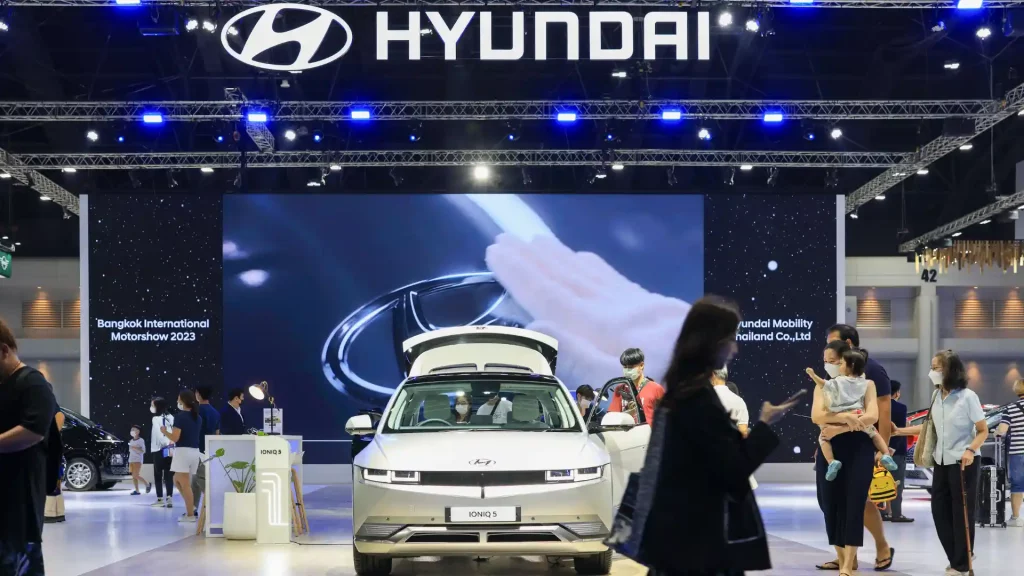In a surprise announcement at the 2023 Los Angeles Auto Show, two giants, Amazon and Hyundai, unveiled an ambitious new plan to redefine the automotive retail sector by introducing online car sales on the e-commerce giant’s platform. Starting in the second half of 2024, customers in the United States will have the option to buy Hyundai vehicles directly through Amazon’s website, a sharp departure from the traditional car-buying model.
The announcement has already sent ripples through the automotive industry. Traditional dealerships, long accustomed to the showroom model, will now have to adapt to the new paradigm. Mike Sullivan, president and owner of several Los Angeles-area dealerships, was optimistic about the partnership, citing Amazon‘s reach and marketing power as valuable assets for improving margins and market size. However, the announcement has had sharp negative effects on the stock prices of established players in the automotive retail business, with shares of used car dealers and large new car dealerships falling.
A Partnership to Change the Car Retail Paradigm
The partnership between Amazon and Hyundai marks a paradigm shift in how consumers will approach buying cars. Until now, Amazon has solely served as a platform for researching and comparing vehicles, offering virtual showrooms and price comparison tools. However, the inability to directly make purchases has been a missing piece in the puzzle. This collaboration changes that, with Hyundai dealerships listing their car models on Amazon, allowing customers to browse, choose, and complete the purchase fully online.
The online car-buying process on Amazon is planned to be simple, convenient, and adaptable to consumer preferences. Customers can apply advanced search filters to find available vehicles based on specific criteria such as model, trim, colour, and features. Once a selection is made, users can then also choose their preferred payment and financing options. Flexibility is a key planned feature, with customers being able to opt to pick up their purchased vehicle at a local dealership or have it conveniently delivered to their doorstep. This feature aims to ease one of the biggest pain points in the traditional car-buying process.
It’s crucial to emphasise that, despite this digitisation, the end seller of the vehicle remains the traditional dealership. Amazon, in this context, functions more as the intermediary, streamlining the transaction process between the customer and the dealership. This approach deftly navigates the legal barriers present in 48 states, where laws limit or ban manufacturers from selling vehicles directly to consumers. By keeping dealerships as the end sellers, the partnership ensures compliance with existing regulations while disrupting the entire sector.
Hyundai’s Innovative Technological Integration with Alexa and AWS
Beyond online purchasing, the multi-year partnership between Amazon and Hyundai also includes technological integrations that improve the driving experience. Starting in 2025, Hyundai vehicles will feature Amazon’s Alexa voice assistant, providing a hands-free entertainment and smart home management tool for drivers.
Hyundai has also designated Amazon Web Services (AWS) as its preferred cloud provider, planning a deep integration of Amazon’s cloud solutions into its vehicles. This is in line with the trend of automakers leveraging cloud services for advanced connectivity, data analytics, and other innovative consumer and R&D applications within their vehicles.
In a world where consumers greatly prioritise convenience and efficiency, the partnership between Amazon and Hyundai looks like a bold step towards redefining how we buy cars. The partnership’s promise of a whole new buying experience, along with innovative technological integrations like Alexa, is sure to set a new standard for the future of car sales.
